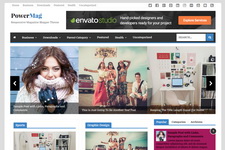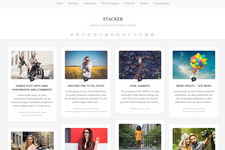For your business to thrive, you need a website. However, most small business owners feel utterly confused when they want to create a website.
It's not their fault. The world of web design thrives on jargon - MySQL vs MongoDB, HTTPS, Responsive Layout, CMS, and plenty more. What's more, with new tech updates, the jargon is growing every day.
But it's not all bad news.
Tech development has also meant that you could skip learning to code and use a website builder that is WYSIWYG or What You See Is What You Get. In plain English, that means it lays everything out for you in the editor exactly as it would be on the live web page.
It has become quite easy to create a small business website by yourself. But which website builder for small business do you choose?
WordPress, Wix, Weebly, Squarespace, Jimdo, Site123–the list stretches endlessly.
We analyze the factors that you must pay attention to when looking for a business website builder.
Best website builder for small business–what to look for
1. Pricing
This is, without doubt, a crucial factor. Remember that your commitment to a website builder is permanent.
Once you choose Wix, there is no way to migrate the site to Jimdo.
Each of these sites uses the same language HTML5, but nothing else is the same. Ford and Toyota are both made from the same alloy steel, but you can't use parts from one for the other. The same happens here.
Wix business plans range from $23 to 49 in the United States (and similar prices elsewhere). But that does not include the price for plugins and custom themes.

What can you do? Research a lot and find authentic information from the product page of each website builder. If needed, open a free account with each of them and ask about the exact cost of creating and sustaining a site. Hidden costs are a big problem.
Thankfully, most offer a 14-day or 30-day money-back guarantee.
2. Customization
Websites have begun to look really stylish. Netizens are by now comfortable with the idea of buying on the web. They look for something extra to retain their focus. Most business owners have turned to fancy layouts with earthy hues and retro typography to grab their attention.
It's quite impossible to make a plain vanilla site successful. Just like a store or a bar, a website has to have a hip and happening look to attract customers.
If you need a high degree of customization, WordPress is the obvious choice. Not only do you have tons of themes to choose from, but a developer could make a few tweaks here and there and give you a Gaussian blur or a custom color palette.
This level of alteration is not possible for most website builders. Some do not allow you to change anything except the background image.
Read reviews and ask around. Websites such as Smashing Magazine provide exceptional reviews and in-depth articles.

Source: knapsackcreative.com
3. Ease of Use
All site builders have WYSIWYG editors. Even hosting companies such as Hostgator have begun to roll out this feature.
But that does not mean they are all easy to use. Some are more intuitive and can be altered easily. Others are clunky and slow.
What you need is a UI that allows you to make changes without a steep learning curve.
Unfortunately, the most popular site builder for making a business website, WordPress, needs some practice to use it well.
But the time you spend would reap rich returns since the knowledge would be handy when maintaining your site.
Wix, Weebly, and Squarespace, on the other hand, have drag-and-drop editors that allow you to move elements around effortlessly.
To add this functionality to WordPress, you need to use Divi or Beaver Builder plugins.
4. SEO Friendly
Search engine optimization is vital for your business website. Without it, your traffic won't grow and sales would languish.
The website builder has to be SEO-friendly.
Every page must allow you to add tags, headers, and footers. It must allow you to insert code snippets for tracking page views and sales.
Moreover, most site owners prefer to use a plugin such as Yoast, which is supported by Wix and WordPress but not others.

Source: live.staticflickr.com
5. Customer Support
WordPress offers no customer support. You will have access to a large and thriving community that would love to answer your queries. But no hand-holding and detailed instructions.
Of course, the hosting service might offer you some help, but if a theme breaks down, you would have to figure out a lot by yourself.
If this makes you apprehensive, go for Wix, Weebly, Squarespace that has 24x7 customer care to ensure you do not face any problems.
6. Social Media Integration
There is nothing that matches social media when it comes to publicity.
But how do you ensure that your blog posts get out there and are read on Facebook and Instagram?
The simple answer is through social media share buttons.
Unless your site builder has this functionality it would be hard to reach out to millions of potential leads. The share buttons have to work perfectly and allow you to engage with your customers.
7. Mobile Friendly
Over half of Google searches happen from smart devices. The website builder has to create a page that is responsive no matter what device it is viewed on.
There are at least four different browsers that are used widely. Each has a desktop and mobile version.
When you sign up for a free trial, set up a dummy site and view it from as many devices as possible to figure out if the website builder works smoothly.
In a nutshell…
Basically, you have to look for–price, plugins, themes, ease of use.
Narrow your choice down to no more than three and begin a free trial. Check out how responsive the sites are and sign up with the service you want.
One factor that you have to keep in mind - WordPress and Shopify developers are easy to locate since they are market leaders.
There is a definite advantage in knowing that should something go wrong, you could always call in an expert and have them sort it out.













